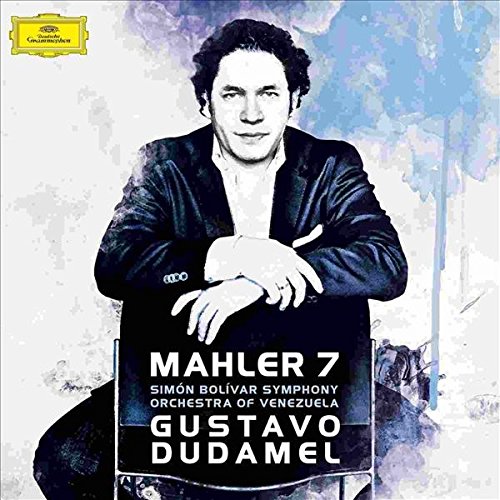MAHLER Symphony No 7
View record and artist detailsRecord and Artist Details
Composer or Director: Gustav Mahler
Genre:
Orchestral
Label: Deutsche Grammophon
Magazine Review Date: 10/2014
Media Format: CD or Download
Media Runtime: 79
Mastering:
DDD
Catalogue Number: 479 1700GH

Tracks:
| Composition | Artist Credit |
|---|---|
| Symphony No. 7 |
Gustav Mahler, Composer
(Simón) Bolívar Symphony Orchestra, Venezuela Gustav Mahler, Composer Gustavo Dudamel, Conductor |
Author: Rob Cowan
The highlight, perhaps predictably, is the first of the two Nachtmusik movements, a ‘meeting of north and south’ where Dudamel and his players hit on the implied tango element, more as a folk connection than as kitsch. It’s quite beautiful, both as sound and as gentle humour, and in the way the music is balanced and phrased. The ‘shadowy’ Scherzo enjoys fine playing and lightning reflexes, though Kubelík (DG, Audite) still comes top for grizzly narrative. Interesting at the start of the lovely second Nachtmusik how clearly Dudamel underlines the violas’ apoggiatura and how effectively he traces the music’s relatively subtle course. The finale takes off like an excited call to arms, with heraldic brass and impressive tonal projection from the whole orchestra. Here, and for the rest of this madcap movement, Mahler ‘lets us have it’ with a vengeance and Dudamel happily takes his cue.
Many years ago (1969, to be exact), as an enthusiastic if naive youngster working for the BBC, I enthused to Deryck Cooke about Bernstein’s (first) New York Philharmonic recording of the Seventh. ‘I agree,’ he said, ‘but you really do have to hear Mahler Seven live.’ As it happened, Jascha Horenstein was conducting the work that night at the Proms. I attended and was rather disappointed; and, much as I admire Horenstein’s Mahler, even the BBC Legends CD release of the same performance (A/00) hasn’t much altered my view. There was so much more to hear on my Bernstein recording, which I still love. Likewise with Dudamel as recorded, who offers us a detailed riot of orchestral colour and an excellent further instalment of his Mahler series, though keep an ear out for rustic Kubelík and the ceaselessly eventful Sinopoli. I also love Maazel’s Vienna Philharmonic recording but will hold my thoughts in check until the forthcoming Philharmonia version arrives, hopefully sooner rather than later.
Discover the world's largest classical music catalogue with Presto Music.

Gramophone Digital Club
- Digital Edition
- Digital Archive
- Reviews Database
- Full website access
From £8.75 / month
Subscribe
Gramophone Full Club
- Print Edition
- Digital Edition
- Digital Archive
- Reviews Database
- Full website access
From £11.00 / month
Subscribe
If you are a library, university or other organisation that would be interested in an institutional subscription to Gramophone please click here for further information.




